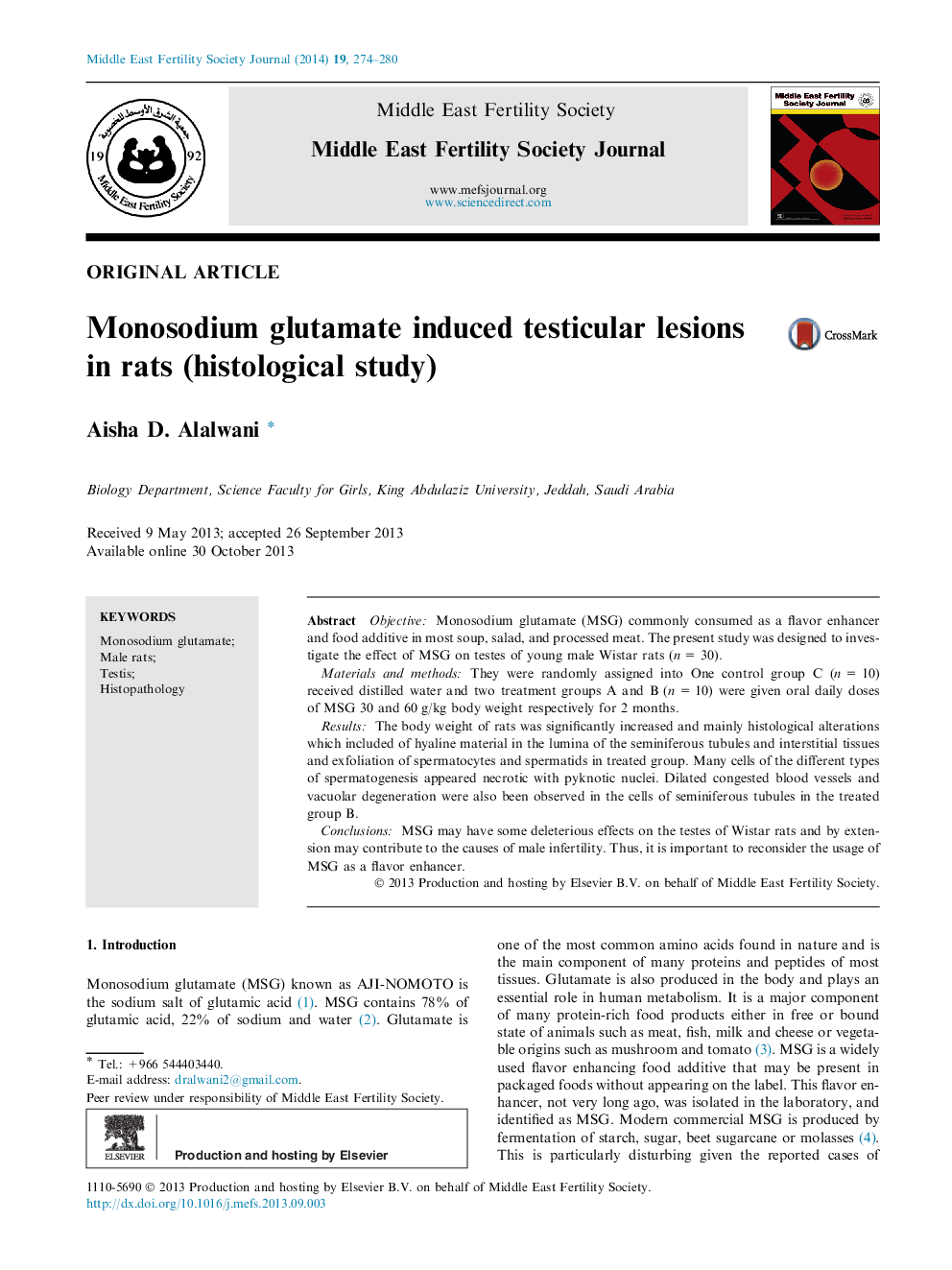| Article ID | Journal | Published Year | Pages | File Type |
|---|---|---|---|---|
| 3966116 | Middle East Fertility Society Journal | 2014 | 7 Pages |
ObjectiveMonosodium glutamate (MSG) commonly consumed as a flavor enhancer and food additive in most soup, salad, and processed meat. The present study was designed to investigate the effect of MSG on testes of young male Wistar rats (n = 30).Materials and methodsThey were randomly assigned into One control group C (n = 10) received distilled water and two treatment groups A and B (n = 10) were given oral daily doses of MSG 30 and 60 g/kg body weight respectively for 2 months.ResultsThe body weight of rats was significantly increased and mainly histological alterations which included of hyaline material in the lumina of the seminiferous tubules and interstitial tissues and exfoliation of spermatocytes and spermatids in treated group. Many cells of the different types of spermatogenesis appeared necrotic with pyknotic nuclei. Dilated congested blood vessels and vacuolar degeneration were also been observed in the cells of seminiferous tubules in the treated group B.ConclusionsMSG may have some deleterious effects on the testes of Wistar rats and by extension may contribute to the causes of male infertility. Thus, it is important to reconsider the usage of MSG as a flavor enhancer.
